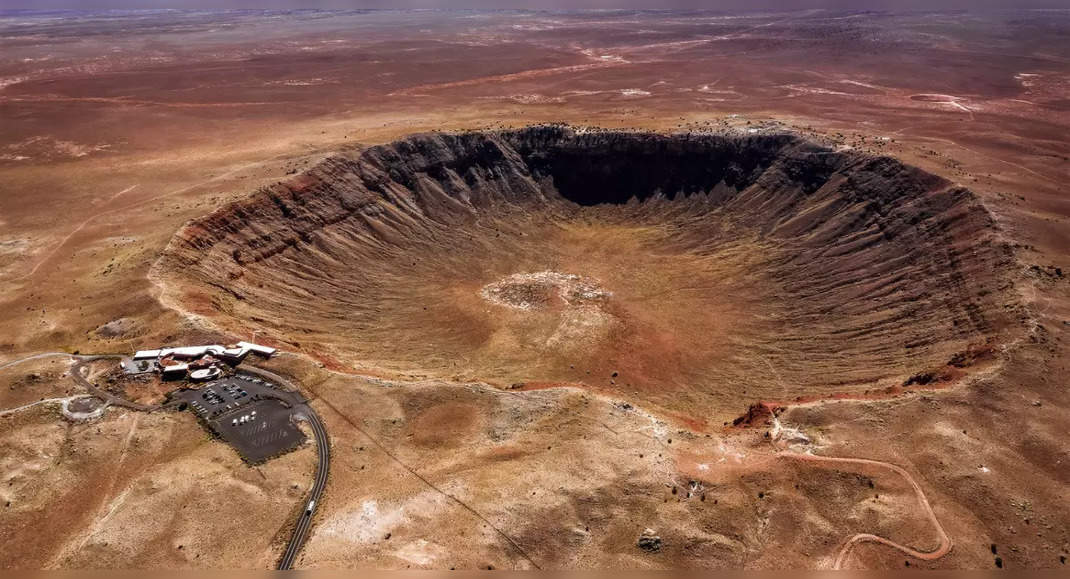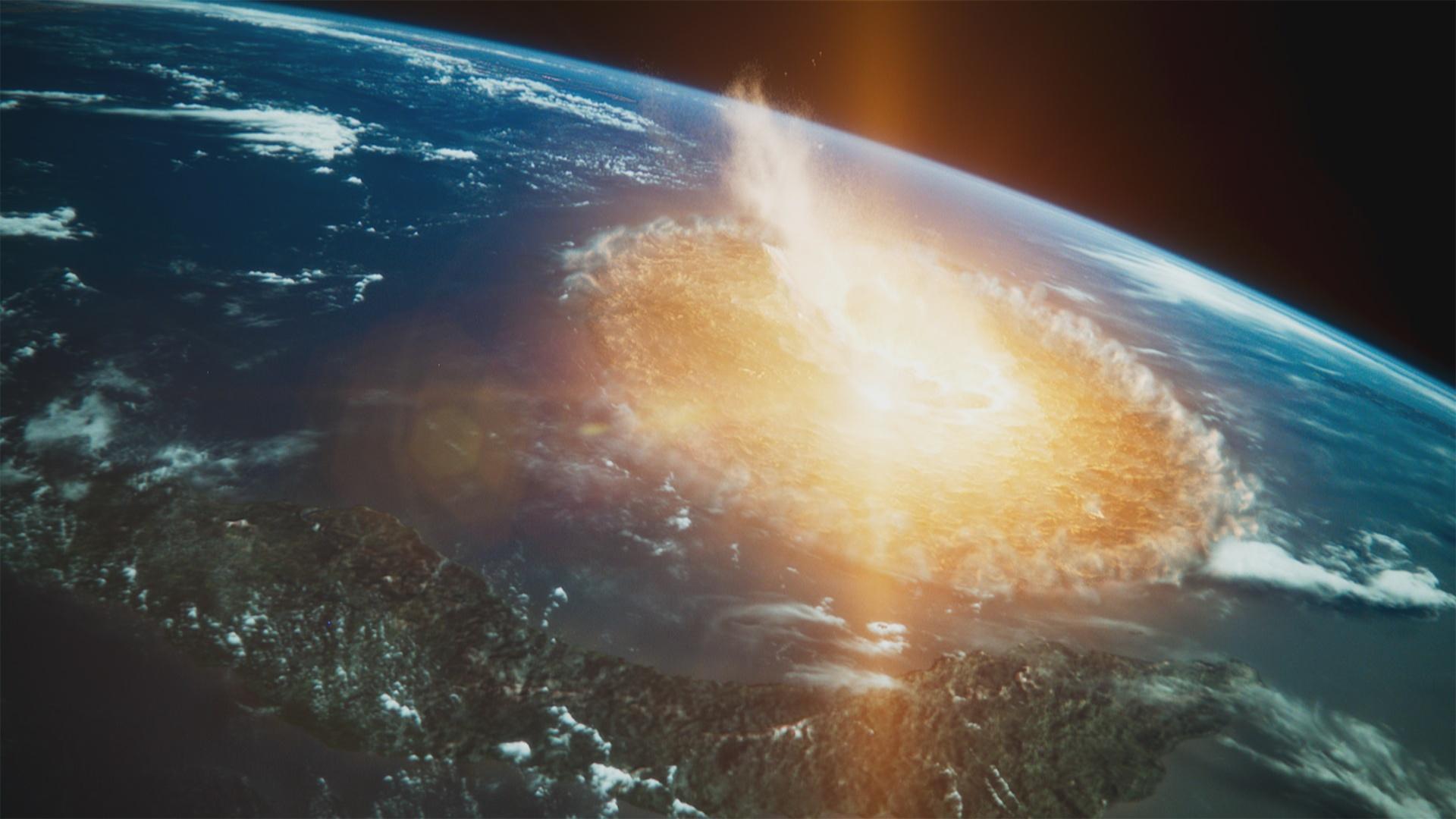Dreaming about a meteor hitting the Earth could symbolize a major change or transformation in your life.

Credit: timesofindia.indiatimes.com
The Science Behind Meteor Impacts
Have you ever wondered what would happen if a meteor were to collide with Earth? The science behind meteor impacts offers fascinating insights into the composition of meteors, the likelihood of a catastrophic impact, and the study of historical meteor impacts. Let’s delve into the science and explore the mysteries of these celestial events.
Exploring The Composition Of Meteors
Meteors, also called shooting stars, are rocky or metallic objects that enter Earth’s atmosphere. These celestial bodies originate from different sources, such as asteroids or comets, and are often composed of various elements and minerals.
While most meteors burn up upon entering the Earth’s atmosphere, some larger fragments manage to survive and crash onto the surface. These meteorites provide valuable insights into the composition of the parent bodies they originated from.
Evaluating The Likelihood Of A Catastrophic Impact
The likelihood of a catastrophic meteor impact depends on several factors. Scientists assess the size, speed, and trajectory of a meteor to determine its potential impact. Factors such as the angle of entry, the density of the atmosphere, and the composition of the meteor also play crucial roles in evaluating the potential danger.
Researchers utilize mathematical models and simulations to predict the possible consequences of a meteor impact. Understanding the likelihood of a catastrophic impact helps scientists develop strategies to mitigate potential risks.
Studying Historical Meteor Impacts
Studying historical meteor impacts provides valuable information about the frequency and effects of these events throughout Earth’s history. By examining impact craters, scientists can estimate the size and power of past meteor impacts.
For example, the Chicxulub impact crater in Mexico is believed to be caused by the asteroid responsible for the extinction of dinosaurs. By studying the geological record and the remnants of meteor impacts, researchers can gather vital clues about Earth’s past and the potential consequences of future events.
In conclusion, the science behind meteor impacts is a captivating field that allows us to understand the composition of meteors, evaluate the likelihood of catastrophic impacts, and study the historical significance of these celestial events. By unraveling the mysteries of meteor impacts, scientists continue to deepen our knowledge of the universe we inhabit.

Credit: www.amazon.com
Consequences Of A Cataclysmic Meteor Impact
Imagine a terrifying scenario where a massive meteor hurtles towards Earth, on a collision course with our planet. This catastrophic event would have far-reaching consequences, affecting every aspect of life on Earth. From global devastation and mass extinctions to severe environmental effects and the disruption of human civilization, the aftermath of a cataclysmic meteor impact would be nothing short of catastrophic.
Global Devastation And Mass Extinctions
The impact of a cataclysmic meteor on Earth’s surface would cause global devastation on an unprecedented scale. The sheer force of the impact would result in massive shockwaves, triggering a series of catastrophic events. Dust and debris would be thrown into the atmosphere, blocking sunlight for months or even years. This lack of sunlight would lead to a global decrease in temperature, causing widespread freezing and an inability to sustain life. As a result, mass extinctions would occur, eradicating numerous species from the face of the Earth, disrupting ecosystems and forever altering the balance of nature.
Environmental Effects: Climate Change, Tsunamis, And Earthquakes
The environmental consequences of a cataclysmic meteor impact would be both immediate and long-lasting. The immense energy released upon impact would generate intense heat, triggering extreme climate changes. Prolonged periods of darkness and cold would be followed by searing heat, exacerbating the devastation and making it nearly impossible for life to recover. Tsunamis would surge across coastlines, obliterating coastal regions and causing widespread flooding. Additionally, the impact would unleash powerful earthquakes, shattering the Earth’s surface and further intensifying the destruction.
Impacts On Human Civilization And Infrastructure
The impact of a cataclysmic meteor would have dire consequences for human civilization and infrastructure. The initial impact alone would cause widespread destruction, leveling cities and reducing infrastructure to ruins. The ensuing climate changes, lack of sunlight, and disruption of ecosystems would devastate agricultural systems, leading to worldwide food shortages and famine. The collapse of communication networks, transportation systems, and essential services would plunge society into chaos, hinder rescue efforts, and impede recovery.

Credit: video.pbsnc.org
Frequently Asked Questions On Dream About Meteor Hitting Earth
What Is The Meaning Of Meteor Hitting Earth?
The meaning of a meteor hitting Earth is when a small space rock or debris enters our atmosphere and collides with the surface, causing an impact event. It can result in explosions, creating a crater, and causing damage to the surrounding area.
What Does It Mean When You Dream About The World Ending Meteor?
Dreaming about a world-ending meteor can symbolize a fear of change or the need to embrace transformation. It may indicate a desire for a fresh start or the need to let go of old habits. Such dreams can prompt self-reflection and a readiness to adapt to new circumstances.
What Does It Mean When You Dream About The Earth Being Destroyed?
Dreaming about the Earth being destroyed symbolizes feelings of vulnerability, fear, or a need for change. It may reflect concerns about the environment, personal challenges, or global issues.
What Does It Mean When You See A Meteor?
When you see a meteor, it means you are witnessing a small piece of rock or debris from space burning up in Earth’s atmosphere, creating a bright streak of light in the sky. It is a natural phenomenon often referred to as a “shooting star.
“
Conclusion
In this blog post, we explored the captivating concept of a meteor hitting the Earth and its potential consequences. From the thrill of witnessing a cosmic event to the catastrophic aftermath, it’s a topic that sparks both curiosity and fear.
By delving into the scientific aspect, we gained a deeper understanding of the impact it could have on our planet and the importance of preparedness. While the chances of a meteor strike are rare, it’s still worth pondering the possibilities and appreciating the wonders of the universe.
Stay curious, stay informed, and let your imagination soar!
